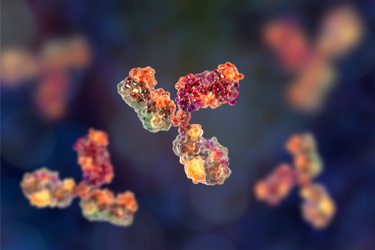Monoclonals: Revolutionizing Pathogen Treatments

Over the past several decades, monoclonal antibody (mAb) therapies have revolutionized cancer treatment and have been effective for conditions ranging from asthma to hemophilia. By comparison, the use of mAbs to treat infectious diseases has lagged behind, with only a handful of approved therapies reaching the market prior to 2020. In the time since, however, infectious disease mAb therapies have entered clinical trials at a record pace, with more and more pathogens being targeted by multiple antibody candidates in a race to market.
The monoclonal antibody market is expected to grow at a compound annual rate of over 10% during the next decade and many more candidate mAbs will enter the development pipeline, including those targeting pathogens. With multiple competing molecules in development at the same time, biopharmaceutical firms will need every advantage to win the race to market.
Leveraging single-use technologies can provide numerous advantages over traditional stainless-steel equipment, including multiple process capabilities, increased scalability and flexibility, reduced risk of cross-contamination, and accelerated timelines. As you plan to manufacture mAbs in clinical manufacturing programs, single-use technologies will provide more flexibility and agility by holding the scaling of the drug substance until demand is well understood, saving developers internal resources, time and money. Finding a CDMO partner with a proven track-record developing mAbs will also help to reduce development risks and provide greater manufacturing capabilities. Review the trends driving the use of mAb treatments for infectious diseases as well as key considerations to remain competitive in the race to market.
Get unlimited access to:
Enter your credentials below to log in. Not yet a member of Life Science Leader? Subscribe today.
